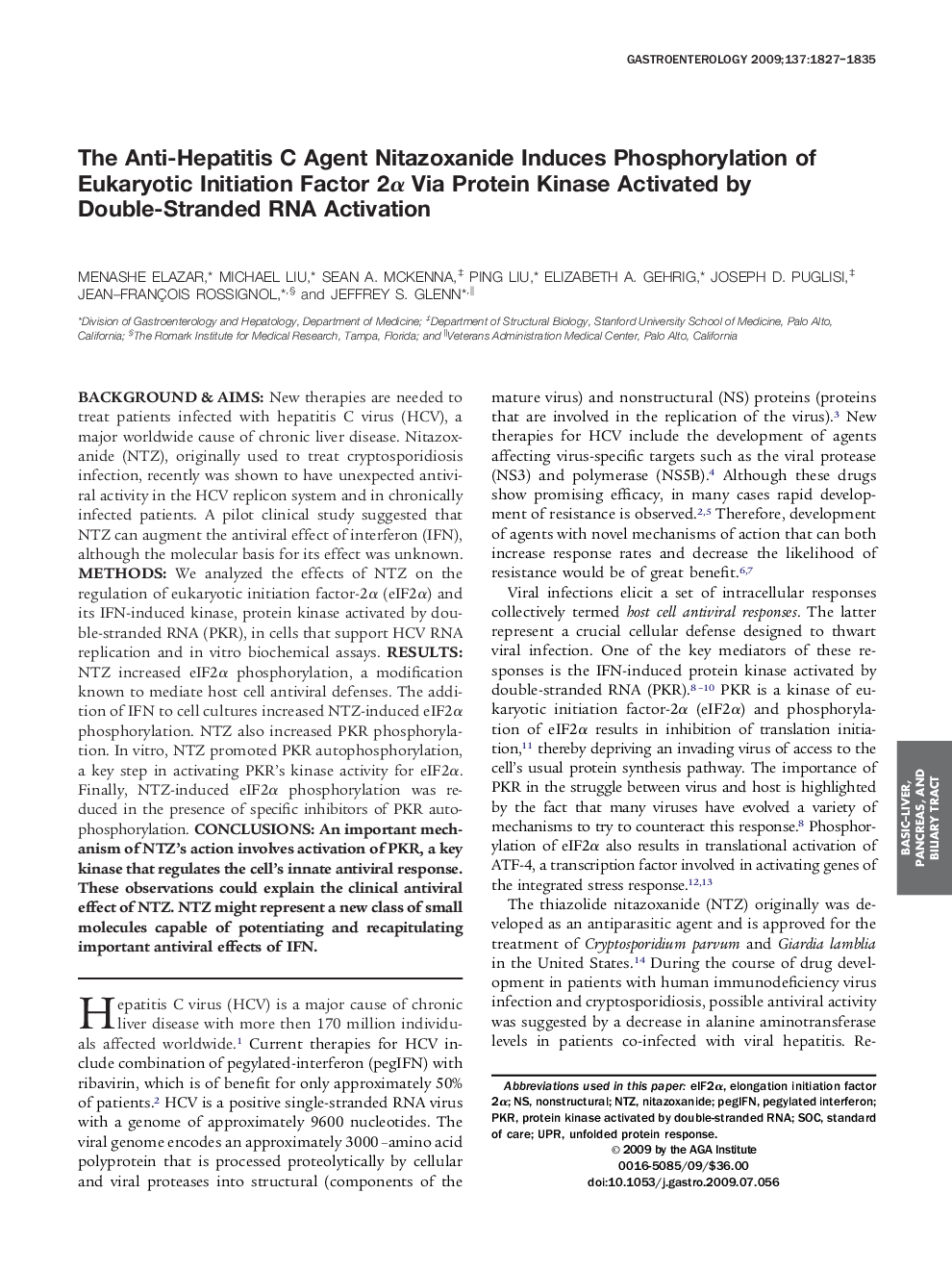| Article ID | Journal | Published Year | Pages | File Type |
|---|---|---|---|---|
| 3294629 | Gastroenterology | 2009 | 9 Pages |
Background & AimsNew therapies are needed to treat patients infected with hepatitis C virus (HCV), a major worldwide cause of chronic liver disease. Nitazoxanide (NTZ), originally used to treat cryptosporidiosis infection, recently was shown to have unexpected antiviral activity in the HCV replicon system and in chronically infected patients. A pilot clinical study suggested that NTZ can augment the antiviral effect of interferon (IFN), although the molecular basis for its effect was unknown.MethodsWe analyzed the effects of NTZ on the regulation of eukaryotic initiation factor-2α (eIF2α) and its IFN-induced kinase, protein kinase activated by double-stranded RNA (PKR), in cells that support HCV RNA replication and in vitro biochemical assays.ResultsNTZ increased eIF2α phosphorylation, a modification known to mediate host cell antiviral defenses. The addition of IFN to cell cultures increased NTZ-induced eIF2α phosphorylation. NTZ also increased PKR phosphorylation. In vitro, NTZ promoted PKR autophosphorylation, a key step in activating PKR's kinase activity for eIF2α. Finally, NTZ-induced eIF2α phosphorylation was reduced in the presence of specific inhibitors of PKR autophosphorylation.ConclusionsAn important mechanism of NTZ's action involves activation of PKR, a key kinase that regulates the cell's innate antiviral response. These observations could explain the clinical antiviral effect of NTZ. NTZ might represent a new class of small molecules capable of potentiating and recapitulating important antiviral effects of IFN.
